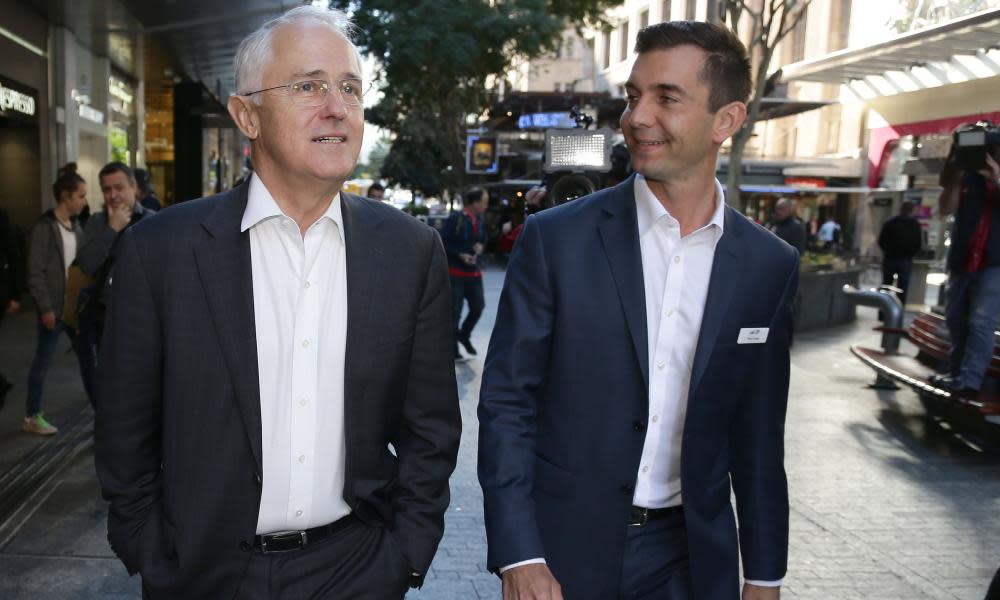Former retail chief savages Shorten's penalty rates stance before Fair Work decision

Politicians should not set pay levels by legislating provisions to prevent or offset penalty rate cuts, the Liberal MP and former National Retail Association chief executive Trevor Evans has said.
Evans made the comments to Guardian Australia before a long-anticipated decision by the Fair Work Commission on penalty rates in the retail and hospitality industries, due late on Thursday morning.
Labor has accused the government of “frothing at the mouth” in excitement at the prospect of penalty rate cuts, indicating that any cut will be used as an attack on the Coalition, which has promised to let the umpire set them independently.
Fearing the commission may cut rates, the Greens promised before the last election to put a floor on penalty rates or require that Sunday rates be higher than Saturday levels.
In January, Bill Shorten responded with a proposal that cuts to penalty rates should be accompanied by beneficial pay and conditions so workers are not left worse off.
Evans said he was “strongly in favour” of penalty rates but there was legitimate debate over the levels of rates and when they should apply.
“These rates are penalising businesses for putting staff on at times that increasingly consumers are choosing to do their shopping, entertaining and eating out,” he said.
“As a consequence of that, the rates are backfiring and businesses are choosing to close, for example on public holidays, resulting in less pay and hours for workers.”
Evans said the Greens proposal amounted to “politicians deciding wage levels”, which would be a “retrograde step” from letting the independent umpire decide rates based on expert evidence.
He said Shorten’s proposal sounded like “an attempt to grab a headline without a lot of policy substance ... it’s a case of them trying to insure themselves against a Fair Work Commission decision they may not be happy with”.
Shorten said that while Labor “respects the independence of the Fair Work Commission, [it would] never support a decision that sees workers worse off”.
“With wages growth at record lows and underemployment at record highs, there could not be a worse time to cut penalty rates,” he said ahead of the decision.
“We are greatly concerned that if its hospitality workers who have their penalty rates cut today, it will be nurses and emergency workers tomorrow.”
Shorten said Labor would fight for the millions of Australian families who rely on penalty rates to put food on the table.
Unions fear a 2014 decision by the commission to cut Sunday penalty rates by about $4 an hour for lower-level casual employees in the restaurant industry may act as a precedent making cuts to Sunday rates in other industries more likely.
The National Retail Association chief executive, Dominique Lamb, said retailers would be relieved if the commission decides to reduce penalty rates on Thursday.
“There have been difficult conditions in the retail sector for some time and the biggest cost for employers is their wages bill,” she said. “With minimum rates continuing to increase year after year, retailers are struggling to have as many staff in their stores to provide good customer service.”
Lamb said the Greens and Labor’s push to protect penalty rates would push up labour costs and decrease full-time employment.

 Yahoo News
Yahoo News 
